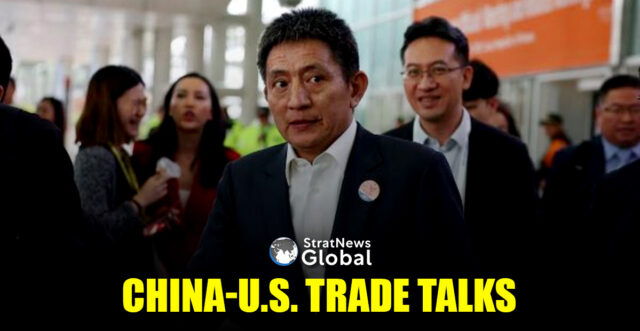China’s top trade negotiator Li Chenggang will travel to Washington this week for discussions with American counterparts, a U.S. official confirmed, as both countries explore ways to move past their fragile tariff truce.
Li, China’s international trade representative who has participated in recent U.S. trade talks alongside Chinese Vice Premier He Lifeng, may meet deputy-level U.S. government officials, the spokesperson said late on Monday, adding that the visit was not part of a formal negotiating session.
A U.S.-based source familiar with the negotiations said there was no meeting planned between Li and U.S. Trade Representative Jamieson Greer and he was not coming at the request of the U.S. side.
Trade Negotiations
The source, who spoke on condition of anonymity due to not being authorized to speak publicly on the matter, said that Washington does not consider Li the primary interlocutor for planning future trade negotiations under the channel established by U.S. President Donald Trump and Chinese President Xi Jinping.
That role would fall to Vice Premier He, who is China’s economy czar, and U.S. Treasury Secretary Scott Bessent.
The Wall Street Journal first reported on Monday that Li would travel to Washington.
Traders on both sides of the Pacific are watching to see whether this month’s latest tariff extension will become permanent or if Trump will once again upend global supply chains with a fresh wave of prohibitively high duties on Chinese imports.
U.S. retailers are stocking up ahead of the critical end-of-year holiday season, while Chinese producers – locked out of the world’s top consumer economy – say they are in “survival mode,” scrambling to secure market share elsewhere to stay afloat.
The world’s two largest economies on August 11 agreed to extend their tariff truce for another 90 days, locking in place levies of 30% on Chinese imports and 10% Chinese duties on U.S. goods. That extension was largely negotiated in late July in Stockholm, a meeting led by He and Bessent, with Li and U.S. Trade Representative Jamieson Greer in attendance.
Once Trump’s tariffs top 35%, they become prohibitively high for Chinese exporters, economists warn.
The Chinese Commerce Ministry did not immediately respond to a request for comment.
Agriculture Discord
The timing of the visit is particularly awkward given the recent highly critical comments by the Chinese ambassador to the United States regarding Trump’s trade policy, the source said.
“(U.S.) protectionism is rampant, casting a shadow over China-U.S. agricultural cooperation,” Ambassador Xie Feng said in a speech to a soybean industry event in Washington on Friday, calling the Trump administration’s plans to curb farmland purchases by “foreign adversaries,” including China, “political manipulation.”
Agriculture has become a major point of contention, as Chinese buyers shun U.S. agricultural products such as soybeans – now subject to a 23% tariff – leaving American farmers in the lurch.
China stepping up its agricultural purchases would make a big dent in its trade surplus with the U.S., analysts say, and was how Beijing sought to meet its commitment to purchase more U.S. exports under the ‘Phase 1’ deal struck during Trump’s first term in 2020.
These purchase pledges were never met after the COVID-19 pandemic hit, and China has since largely shifted soybean purchases to Brazil.
China Hopeful Of A Better Deal
But Beijing thinks it can cut a better deal this time out.
“China’s requests will include lower tariffs and potentially access to the U.S.’ cutting-edge technologies,” said Xu Tianchen, a Beijing-based senior economist at the Economist Intelligence Unit.
“It’s quite unclear if the White House is going to accept these, and what it’s going to ask for in exchange.”
The U.S.-based source added that it would make sense for China to increase farm goods purchases to reduce the U.S. trade deficit, while noting Beijing has taken steps to cut purchases of American farm goods.
Li’s trip would follow three previous rounds of trade negotiations between the two nations since May – in Geneva, London and, earlier this month, in Stockholm.
The last time a senior Chinese trade negotiator visited the U.S. was in November 2023, when He Lifeng met then-U.S. Treasury Secretary Janet Yellen in San Francisco, ahead of the 2023 Asia-Pacific Economic Cooperation leaders’ summit in the city.
Then vice-Premier Liu He, He Lifeng’s predecessor, was the last top Chinese trade official to travel to Washington for bilateral talks, signing the ‘Phase 1’ trade deal with the Trump administration in January 2020, committing Beijing to boost purchases of U.S. exports by $200 billion over a two-year period.
(With inputs from Reuters)





